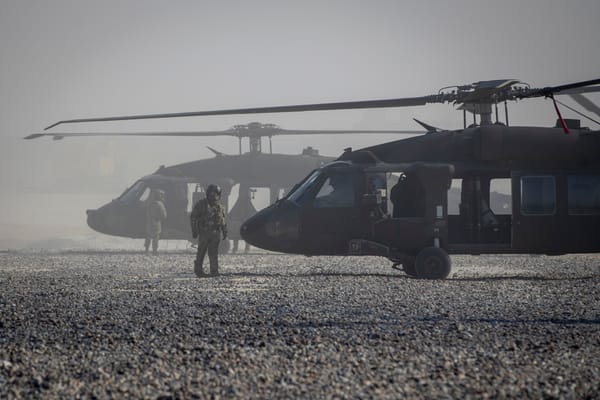Fears continue to mount that the United States might be dragged into a regional conflict in the Middle East. But this dreaded war has already broken out: In recent weeks, US military bases have come under repeated attack from Iranian proxies in the region, and there is no sign the attacks will abate anytime soon. At first, US Central Command published regular updates and claimed that the attacks had produced no casualties apart from a contractor who died from a heart attack while seeking shelter, as well as 19 service members who had suffered traumatic injury from Iranian-proxy strikes against bases in Syria and Iraq. The drones and rockets were all being shot down, CENTCOM insisted. Now, CENTCOM has ceased issuing updates. How many Americans have been wounded and killed thus far? How many more are at risk of death and serious injury? For the moment, we don’t know.
All of this points to an ominous development: the decline of deterrence. Over the past several weeks, US officials pleaded with Iran-backed militants and terror proxies to stop launching drones and rockets and threatened severe consequences should they fail to comply. Washington has followed through on these threats by retaliating with airstrikes, all the while stressing the defensive nature of these strikes and promising to back away the moment the attacks on US bases stop. But after every airstrike, armed groups in the region have dialed up their anti-US activities. Reports are now circulating of several large armed groups in Iraq declaring a de facto state of war against America.
The core of the problem here is that US forces are spread out across more than a dozen bases in the region. None of these bases is strong enough to defend itself from a concerted attack. What they have relied on, instead, was the perception that if you attacked even a weak American outpost, you were asking for trouble: It would only be a matter of time before the entire US war machine descended upon you to neutralize the threat.
“It has dawned on America’s enemies that the promised retaliation isn’t likely to come.”
